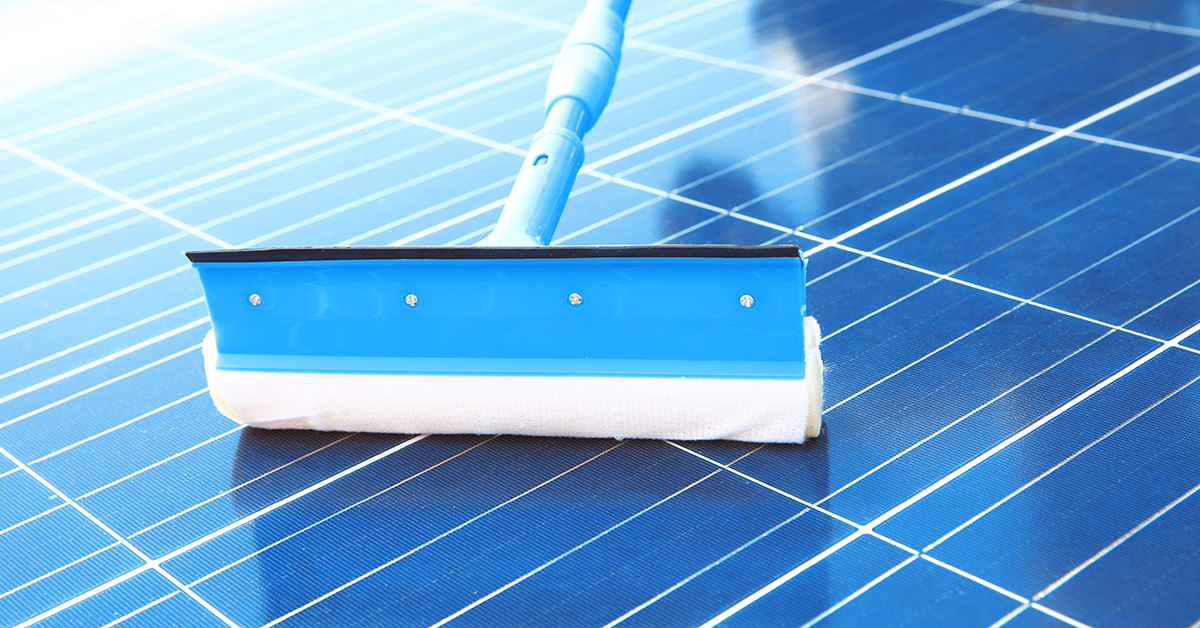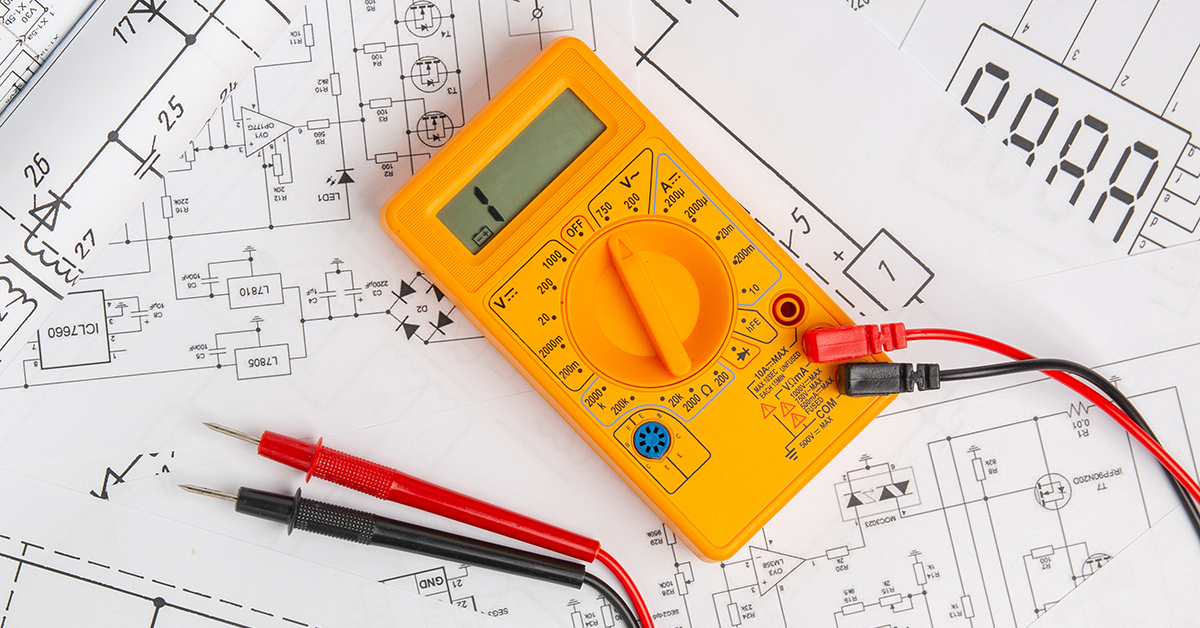When designing a solar setup for your home, one of the biggest questions you encounter is including a solar battery backup.
Experts generally consider batteries the most expensive part of any solar system.
As a result, homeowners looking to save money often purchase more panels and skip batteries altogether.
When grid-tied, at night, homeowners might have the opportunity to use the credits their solar panels racked up during the day.
Net metering might seem like a more cost-effective solution in the short run, but not every power company offers it.
It also fails to account for night-time emergencies and requires power dependence.
So, should you install batteries?
Let’s discuss the advantages.
What Is a Solar Battery Backup?
Solar systems do not require batteries.
The solar panels generate energy that an inverter can convert into AC power that your home can use to meet or supplement its energy consumption needs.
However, when you add solar batteries, these components provide storage for the excess energy created by the solar panels.
Solar panels then provide a trickle charge to keep the batteries topped off.
When the house does not have direct power, such as solar panels or the grid, it pulls from the batteries.
Some systems prioritize items that pull from the battery, like lights and the smoke alarm.
Why Should You Invest in a Solar Battery Backup?
When you weigh the pros and cons of installing solar batteries, considering the cost benefits is a good idea.
However, it would help if you also looked beyond this to consider your energy needs, energy dependence goals, and the effects on the environment.
1. Maintain Power During Emergencies
Emergencies can strike at any second; even disasters a continent away can affect your community.
When these emergencies lead to power outages, solar panels can only benefit your household during the daytime.
Once night falls, your home loses power.
The solar panels might struggle to produce electricity during the daytime due to intense cloud cover, heavy snowfall, smog, or smoke.
With a solar battery setup, you can power through emergencies.
Solar batteries keep your house powered, so you can charge devices and keep an eye on the news.
If there is no immediate threat to your safety, the family could huddle up by the fire and watch movies until the emergency passes.
2. Never Waste Hundreds in Spoiled Food Again
When a homeowner creates a solar battery backup system, the refrigerator is often the first appliance prioritized.
This reduces the likelihood of the fridge losing power and failing to maintain a safe temperature for the food inside.
Food spoilage can quickly become an expensive and smelly mess.
Solar battery backups can keep these and other essential components running, but plan.
Upgrade your fridge to an energy-efficient model to reduce the risk of draining the battery too quickly.
During an emergency, you might also have the option to change the temperature in the fridge so that it still keeps food at the right temperature but is not colder than needed.
3. No Interruptions in Work Schedule
Most commercial buildings have backup power options integrated into their infrastructure.
More often than not, this involves the use of backup generators.
Consequently, businesses often still have electricity for several hours even when nearby homes do not.
A Gallup Poll in late 2021 found that 45% of full-time employees in America continue to work from home.
So, Americans now run the risk of losing productivity during outages.
When you install a solar battery backup, you can include outlets in your office space to ensure you can continue to work.
While disruptions might not affect the income of salaried workers, contract workers and hourly workers need to protect their ability to work.
Even salaried workers might feel grateful for not falling behind on work during a power outage.
4. Lend Assistance to Others
When you have the means to protect yourself and your household during an emergency, you are also in a better place to help others.
While you certainly cannot power every home on your street, you might find yourself in a position to give neighborly assistance to the people who need it most, including:
- Allowing persons to charge their phones or laptops
- Allowing a neighbor to use the internet to submit work
- Offering a warm shower
- Providing entertainment while waiting for the electricity to return
5. Avoid Peak Usage Charges and Price Fluctuations
All across America, energy companies have finally perfected the art of determining when customers draw the most energy from the grid.
These companies charge more for usage during peak hours to reduce the risk of grid overload, prompting households to conserve.
Overall, energy bills also continue to rise and fluctuate with oil in some areas.
When you invest in a solar battery backup, you minimize these effects.
This is especially important if you live in an area that does not offer net metering.
Even off-grid properties benefit because generator fuel prices fluctuate based on market prices.
6. You Can Build in Remote Areas
CNBC and several other media agencies have reported that America has a 5 million deficit in homes.
This has contributed to the higher cost of buying homes, prompting many Americans to consider alternative living or build their own homes.
Distance from on-grid electricity often scares many aspiring homeowners out of building in remote areas.
When installing a solar battery backup, it becomes possible to build in remote areas.
You no longer need to consider expensive quotes from the power company to run a line to your home.
Install solar with a battery bank to have power day and night.
Then, buy appropriate appliances to ensure you don’t overload your battery bank.
You can then continue to expand it.
7. You Break Even Faster
You probably considered solar after reviewing the cost benefits.
If you live on the grid and don’t have a net metering system, you likely wondered how you could better use the excess energy your solar panels generate.
A battery bank answers the question.
For homeowners who experience blackouts, it also offers a more cost-effective backup power source.
Homeowners in off-grid locations often pair solar with a generator.
If there is no battery bank, the solar panels power the home during the day.
They then use a generator and propane to power and heat the home at night.
Investing in a solar battery backup system improves the capability of the solar system and reduces the need for increasingly costly fossil fuels.
8. It Promotes Sustainability
All across the world, efforts are ramping up to slow climate change and pollution.
Solar installations provide an excellent way to reduce or even eliminate the need for fossil fuels one building at a time.
Consider these benefits:
- Solar energy use curbs pollution, which amounts to $167 billion in savings that people would otherwise spend on environmental harm and health issues
- Reducing pollution can also save 25,000 additional lives per year due to reduced health issues
- Reducing our carbon footprint could amount to $259 billion in savings from climate change damages
- Reducing fossil fuel dependence corresponds with reducing water consumption, which could provide water for 1.3 million more U.S. homes
What Are the Different Types of Batteries?
Not all batteries are created equal, especially in the solar world.
You can discharge some batteries more often without causing damage.
Some also require more maintenance than others.
Consider the pros and cons of the two most common options for your solar battery backup.
Lead-Acid Batteries
Most homeowners use deep-cycle lead-acid batteries for their homes.
The two main types include sealed lead-acid batteries and flooded lead-acid batteries.
Flooded lead-acid batteries generally require topping up the fluids with distilled water.
Sealed lead-acid batteries do not need topping up.
Both types store power for lengthy periods and are well-known for their reliability.
Homeowners also gravitate toward this choice because of cost.
They are currently the most affordable option on the market.
At the end of the batteries’ lifecycle, recycling them is easy.
Lithium-Ion Batteries
Lithium represents the gold standard of batteries across virtually all applications.
Engineers use these batteries in applications that range from electric vehicles to laptops.
Homeowners now spend the extra cash for these elite battery banks for several reasons:
- You can discharge them to lower rates before encountering a risk of causing damage
- You can mount them in any direction or angle
- They are lighter and smaller, which makes them easy to maneuver for DIY installations
- They require no regular maintenance
- They tend to last longer than other batteries and often come with warranties lasting up to 10 years
Unfortunately, these batteries are the most expensive solar battery backup option on the market.
Weigh the pros and cons before deciding if the benefits are worth paying twice as much for your battery bank.
How Many Batteries Do You Need for Your Backup System?
When determining how much battery power you need, return to the calculations you used to determine how many solar panels you required.
If you have had your solar panels and a monitoring system installed for some time, check the information to adjust your figures based on actual usage.
Then, determine your needs and parameters:
- What is your budget?
- Do you intend to run the entire house on battery power or just the main components?
- How long do you expect to run the house on battery power at a time?
- Are you fully off-grid, or do you intend to be?
- If you are not off-grid, how often does your home experience blackouts?
- What are potential common weather conditions you need to account for in your area?
In most cases, you might only need to power critical functions in your home when you don’t have power coming in from the solar panels or the grid.
In these cases, you might only need 10 kWh to 30 kWh to power the home.
You can use a sub-panel to route the critical components through the solar battery backup.
How Do You Install a Solar Battery Backup?
Labor costs can significantly increase your installation cost.
The good news is that installing batteries is an easy process.
With the proper instructions, a willingness to learn, and basic handiness, you could do it over a weekend or two.
When you choose the right solar company to order from, you also receive support on executing the process or reducing costs by doing some of it and outsourcing the rest.
Before you get started, however, it’s essential to check with local or municipal laws and codes.
Some areas might require a licensed electrician for the job or might require an inspector to review the completed process to ensure the installation is safe, correctly done, and up to code.
The last thing you want is to install solar to save money and then end up spending thousands in fines.
If you decide to hire professionals, ask someone else with a solar battery backup in your community.
They can likely recommend or warn you about local professionals.
Google can also provide local listings and their aggregate customer ratings.
In some cases, the planning and zoning department in your area can recommend someone, so ask.
How Can Unbound Solar® Help You?
At Unbound Solar®, we help homeowners achieve energy independence with solar components and easy-to-follow instructions.
We provide lifetime support and can even recommend installers for the job.
Whether you choose to hire help or install your solar battery backup on your own, we ensure you have everything you need.
Contact us to get started!




